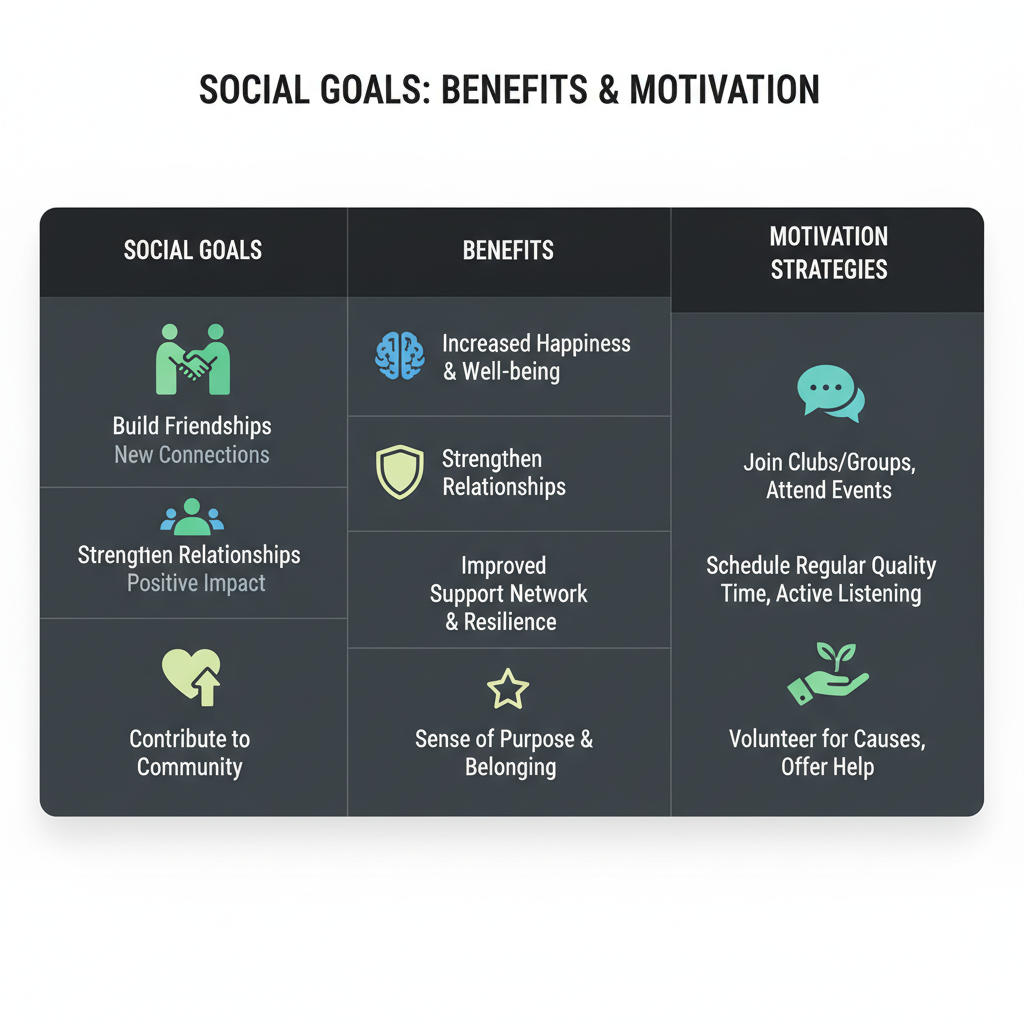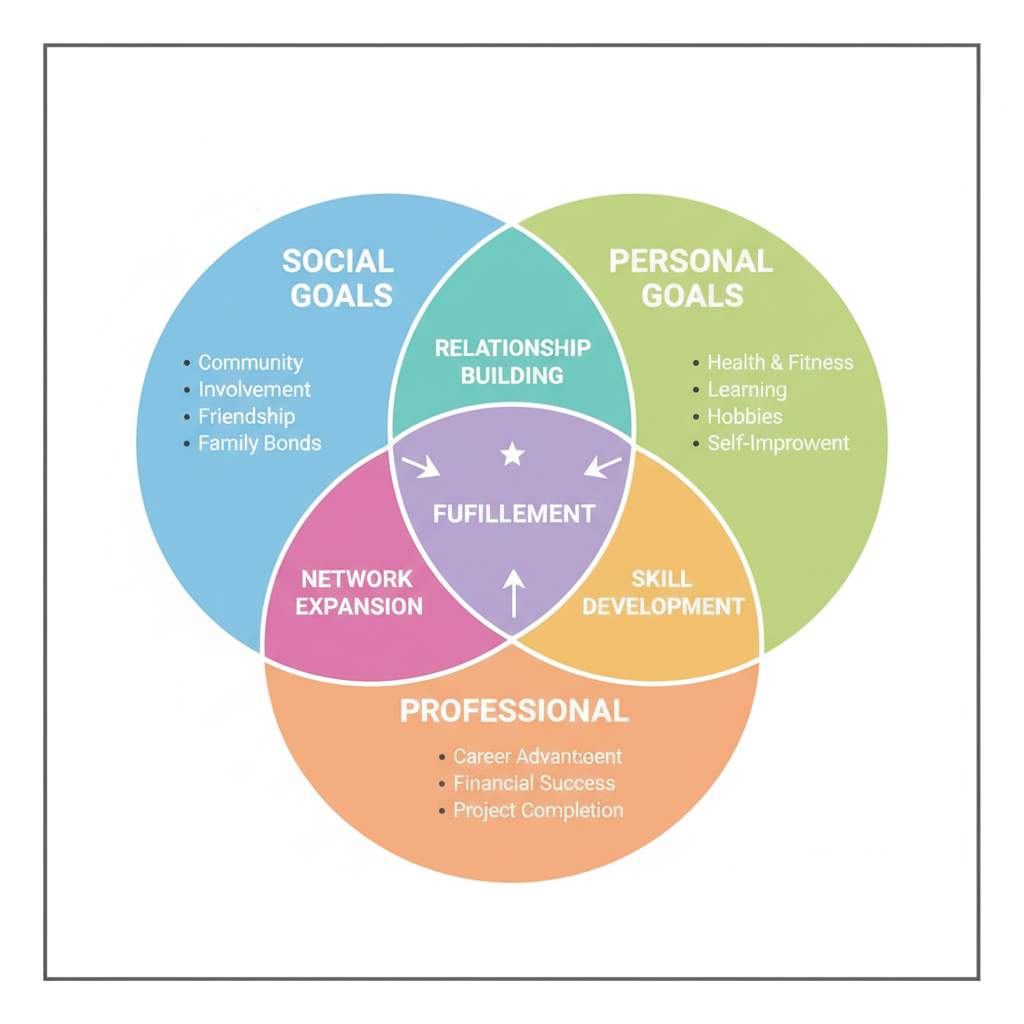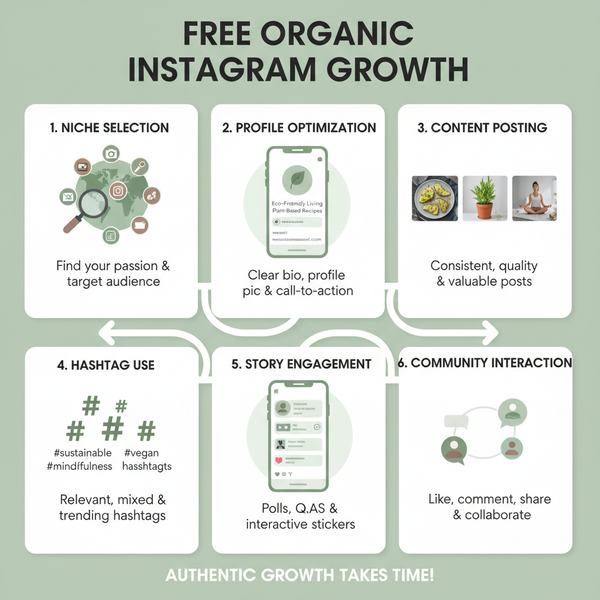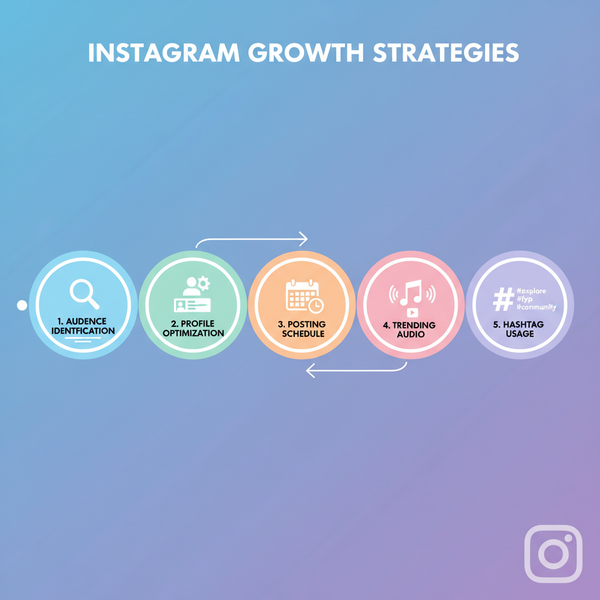What Are Some Social Goals and How to Achieve Them
Learn what social goals are, see examples like volunteering or networking, and discover strategies to build stronger relationships and community ties.

Introduction to Social Goals
Social goals are a powerful way to build meaningful relationships and strengthen your connection to the community. Whether you want to foster deeper friendships, expand your network, or contribute to local initiatives, understanding social goals and how to achieve them can greatly enhance your quality of life. This guide will explain what social goals are, why they matter, give practical examples, and outline actionable strategies for setting and maintaining them.
---
Understanding Social Goals and Their Importance
Social goals are objectives you set that focus on your relationships, interactions, and contributions to your community. Unlike purely personal or professional goals, social goals center on how you connect with others and participate in society.
Setting social goals is essential for personal growth because humans are inherently social beings. Strong social connections can improve mental health, open new opportunities, and enhance overall life satisfaction.

When you intentionally work toward strengthening your social interactions, you create a more fulfilling and resilient life. These goals also encourage empathy, collaboration, and mutual understanding—skills that serve well beyond friendships.
---
Common Examples of Social Goals
You might wonder, what are some social goals that people typically pursue? Here are several popular examples you can adapt to your situation:
- Improve communication skills: Practice active listening and clear expression.
- Expand your social network: Attend events, join clubs, or connect online.
- Volunteer regularly: Contribute time to causes you’re passionate about.
- Reconnect with old friends: Rebuild valuable relationships from the past.
- Strengthen family bonds: Plan regular family gatherings or activities.
- Participate in community events: Support local initiatives and meet new people.
- Mentor someone: Share your knowledge to guide another person’s growth.
These examples provide a starting point, but your social goals can be tailored to your personality and values.
---
How Social Goals Differ from Personal and Professional Goals
Social goals often overlap with other goal types, but they have distinct characteristics:
| Aspect | Social Goals | Personal Goals | Professional Goals |
|---|---|---|---|
| Main Focus | Relationships & Community | Self-development & Lifestyle | Career & Job performance |
| Measurement | Quality of connections & interactions | Personal achievements | KPIs, promotions, income |
| Examples | Join a social club, volunteer, improve networking | Learn a language, increase fitness | Gain technical certification, manage team projects |
Recognizing these differences helps you allocate time and effort appropriately across life domains.
---
Benefits of Pursuing Social Goals
Committing to social goals yields numerous benefits:
- Improved mental health – Supportive social networks reduce stress and depression.
- Boosted confidence – Positive feedback and acceptance help build self-esteem.
- Greater empathy – Interacting with different perspectives fosters understanding.
- Enhanced problem-solving – Group dynamics can inspire creative solutions.
- Strong support systems – Friends and community members can offer assistance in challenging times.
---
How to Identify Your Own Social Goals
Before setting goals, it’s crucial to understand your current social habits and interests.
- Self-assessment: Evaluate your existing relationships and your comfort in various social situations.
- Interest mapping: List activities you enjoy that involve others—sports, arts, volunteering.
- Define desired outcomes: Decide whether you want more friends, deeper relationships, or a stronger community presence.

Documenting your goals can reveal patterns and clarify your priorities.
---
Setting Social Goals with the SMART Framework
The SMART framework is highly effective for turning broad aspirations into actionable objectives.
- Specific – Define exactly what you aim to do.
- Example: “I will join a local book club and attend twice per month.”
- Measurable – Set criteria to track progress.
- Example: “I will meet at least three new people in the next month.”
- Achievable – Ensure the goal is realistic given your resources.
- Example: “Volunteer once a month” rather than “Volunteer daily.”
- Relevant – Align goals with your personal values and lifestyle.
- Example: Choose causes you genuinely care about.
- Time-bound – Set deadlines to prevent procrastination.
- Example: “Reconnect with two old friends within the next three months.”
By following SMART principles, you increase your chances of success and maintain manageable expectations.
---
Strategies to Maintain Motivation and Track Progress
Sustaining enthusiasm for social goals requires proactive strategies:
- Schedule regular check-ins to review progress.
- Share your goals with a supportive friend for accountability.
- Celebrate small milestones to boost motivation.
- Keep a journal or use an app to log social interactions.
---
Overcoming Challenges and Social Anxiety
Pursuing social goals can be intimidating, especially if you struggle with shyness or social anxiety. Here’s how to address common obstacles:
- Start small: Set micro-goals like greeting a neighbor or commenting on a friend’s post.
- Practice in low-pressure environments: Attend casual gatherings or hobby meet-ups.
- Seek professional help: Therapists can provide tools to manage anxiety.
- Focus on mutual benefit: Remember, social interactions are two-way exchanges.
With time, comfort increases, and these challenges become easier to tackle.
---
Role of Technology and Social Media
Technology offers powerful tools to support social goals:
- Social media platforms: Connect with like-minded communities.
- Messaging apps: Facilitate consistent communication.
- Event discovery apps: Find meet-ups and activities nearby.
- Online volunteering: Contribute skills remotely to global causes.
While digital tools make achieving social goals easier, balance is key—don’t substitute online interaction entirely for in-person connections.

---
Long-Term Impact of Social Goals
Well-executed social goals have lasting effects:
- Stronger relationships: Deep, enduring friendships and networks.
- Greater community involvement: Positive contributions to society.
- Personal satisfaction: A sense of purpose and belonging.
- Opportunities for growth: Exposure to diverse ideas and career prospects.
Over time, you’ll notice how these achievements compound, enhancing both your social and personal life.
---
Summary and Encouragement
Social goals play a vital role in developing meaningful connections and contributing to the community. To recap:
- They differ from personal and professional goals.
- Benefits include better mental health, confidence, and empathy.
- Use the SMART framework for clear, actionable steps.
- Technology can enhance—but not replace—face-to-face interactions.
- Overcome anxiety by starting small and building on successes.
Every large social transformation begins with tiny actions. Whether it’s saying hello to a neighbor or joining a local group, start today, remain consistent, and watch your social life flourish.
Ready to strengthen your social connections? Identify one social goal now and take your first step toward lasting relationships.




